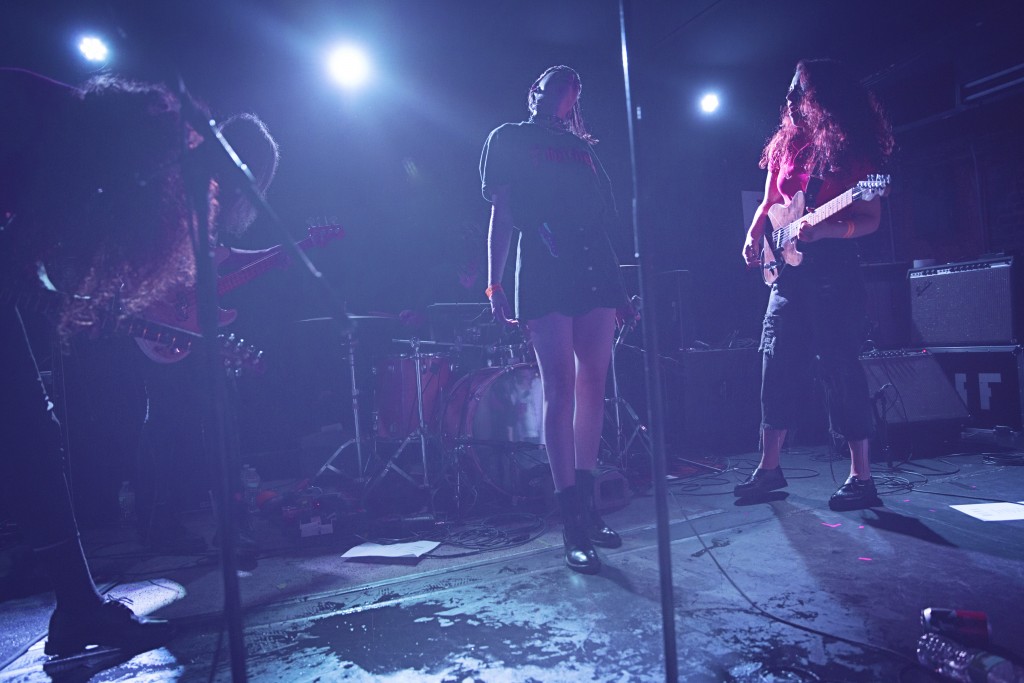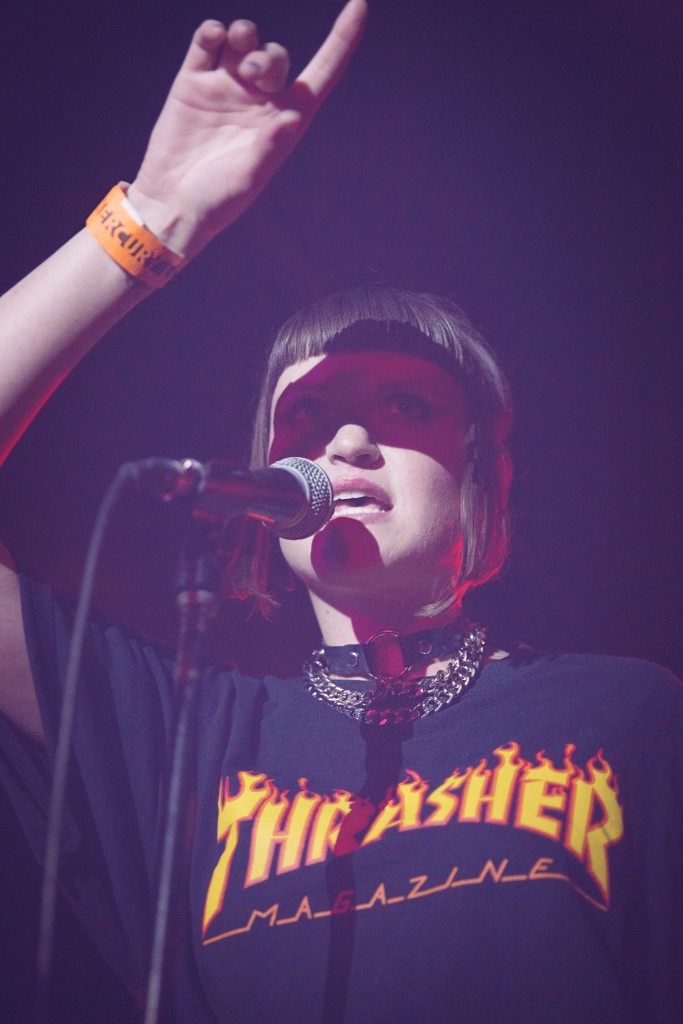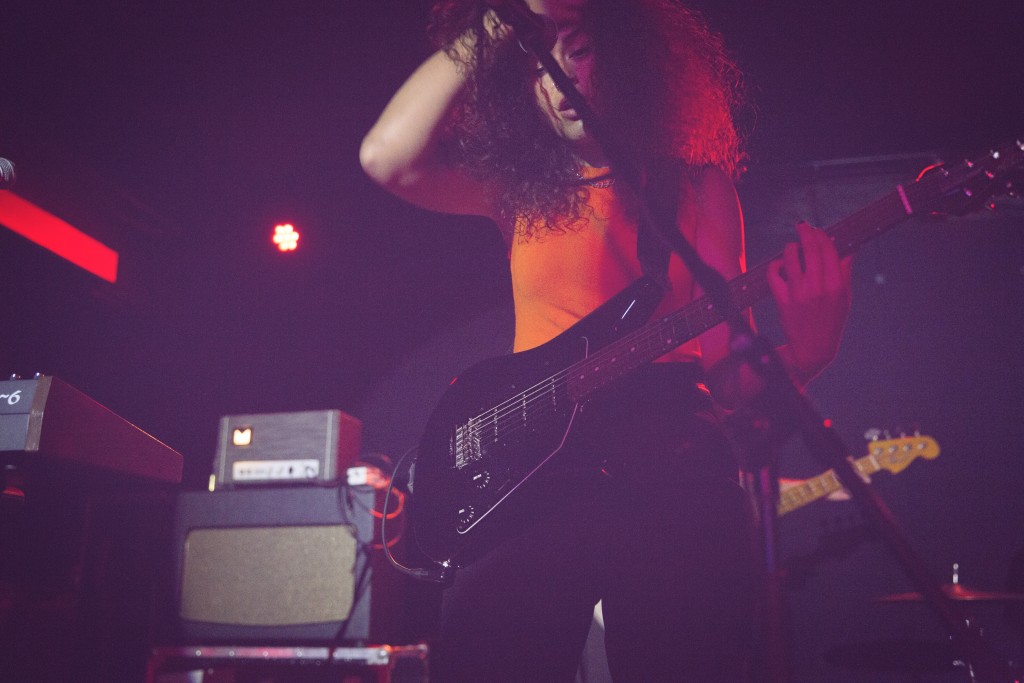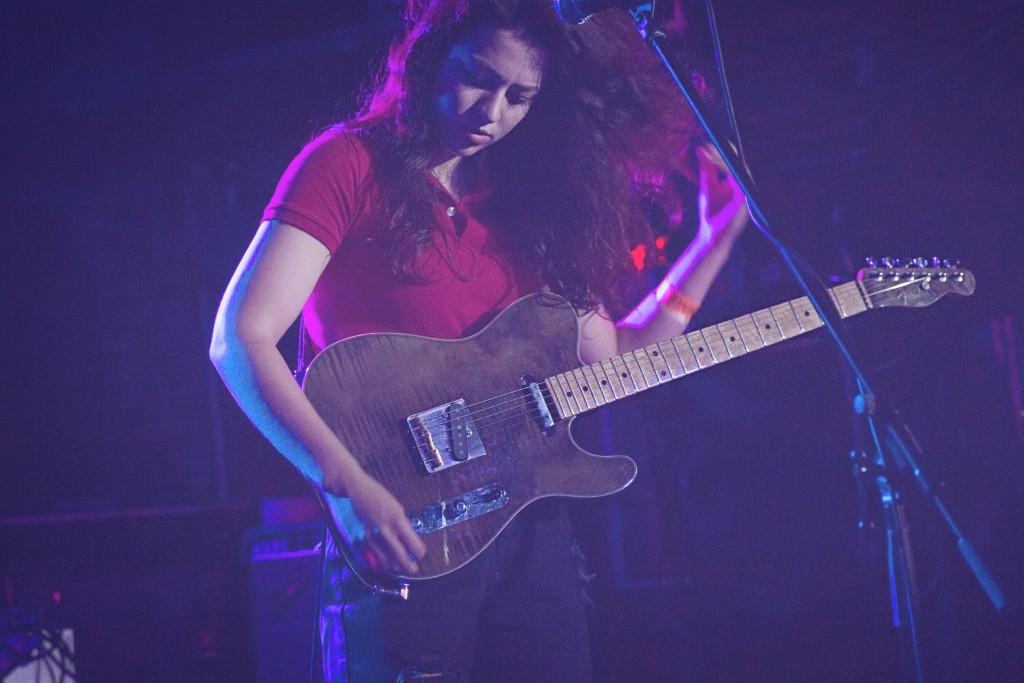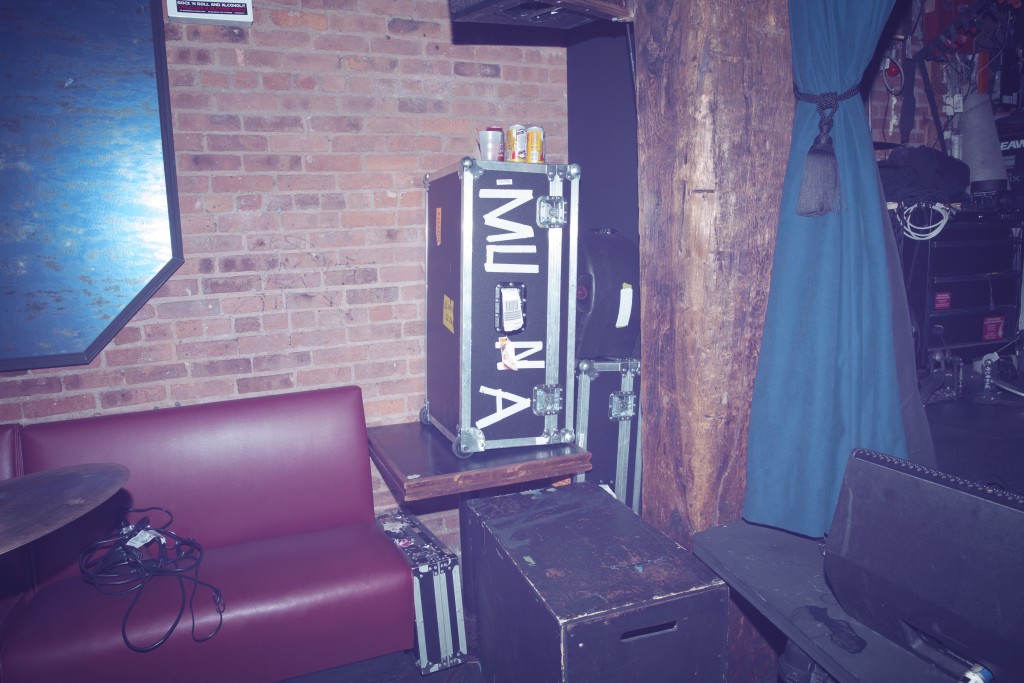 photos / Lauren Nakao Winn
photos / Lauren Nakao Winn
words / Erica Hawkins
Through some sort of magical dark-pop alchemy, MUNA transmutes weighty subject matter into synth-pop gold. That’s the unprecedented allure of this self described girl gang. You want to stay up all night discussing political theory and obliterating gender norms with them. You also want to just skip the heavy and carefree dance with them until sunrise, and according to them, that’s fine too.
The juxtaposition of heavy and light is also present in their debut music collection, The Loudspeaker EP. It delves into topics like abuse, forced silence, and intimidation all while immersing you in sparkly synth, rhythmic drums, palpable percussion, and sing along inducing hooks.
It’s worth noting that although Katie, Josette, and Naomi are unquestionably distinct individuals, they’re nearly indistinguishable from the music they create. Both are energizing, audacious, and unabashedly honest – all things I immediately felt the moment I phoned the LA based trio as they took turns laughing, finishing each other’s sentences, and corroborating one another stories from their mid-tour hotel room in Des Moines, Iowa.
We discussed their EP, what it’s like to live, work, and cuddle with your best friends full time, and how being vocal about their queer identity has impacted their experience as a band.
I’ve really enjoyed listening Loudspeaker. Very catchy, very easy to dance too but also some pretty weighty themes and lyrics there. Was that intentional as you recorded that album?
Katie: That’s our thing I feel like.
Naomi: I think that’s been how the music has sounded since the beginning. That’s always been how the music has come to fruition. That’s part of the reason we wanted to call it dark pop — it felt right, applicable.
Katie: This project started as an experiment. I was scheming a little bit. I came from writing songs from my guitar and they were always very emotional and straight from the diary type shit. I kind of wanted to see if we could bring that into a dance realm because I was tired of performing and not feeling it in my body. That is one thing I think is cool about this project. When the lyrics are so emotional but you’re also dancing. I prefer that experience rather than having all these feelings and not knowing where to put them.
You haven’t been shy when it comes to speaking out about topics that some pop stars have shied away from in order to avoid making people uncomfortable. Have you always felt like you can be confident about saying exactly how you feel?
Josette: When we first started the band and were going to release songs we talked about being out and if we wanted to be out as three queer women. I think for Naomi and I it was a question if we wanted to do that, but the more we have been in this project the more it’s like yeah, we want to be out and we want to represent the queer community. We want to show people that they can do whatever.
Naomi: In terms of political stuff we engage with on social media. The personal is political so obviously the songs have political meaning but the way we engage with stuff having to do with Black Lives Matter and just being liberal young people – just personally I feel like if you don’t relate to us because of something like that I don’t really give a fuck. I don’t care. What I really want to do, and I think what we really want to do as a band is engage with the kind of people that need the music and need us to be talking about what we are talking about. And if you aren’t down with that, that sounds like a personal problem.
Josette: We have a platform and we’re going to use it.
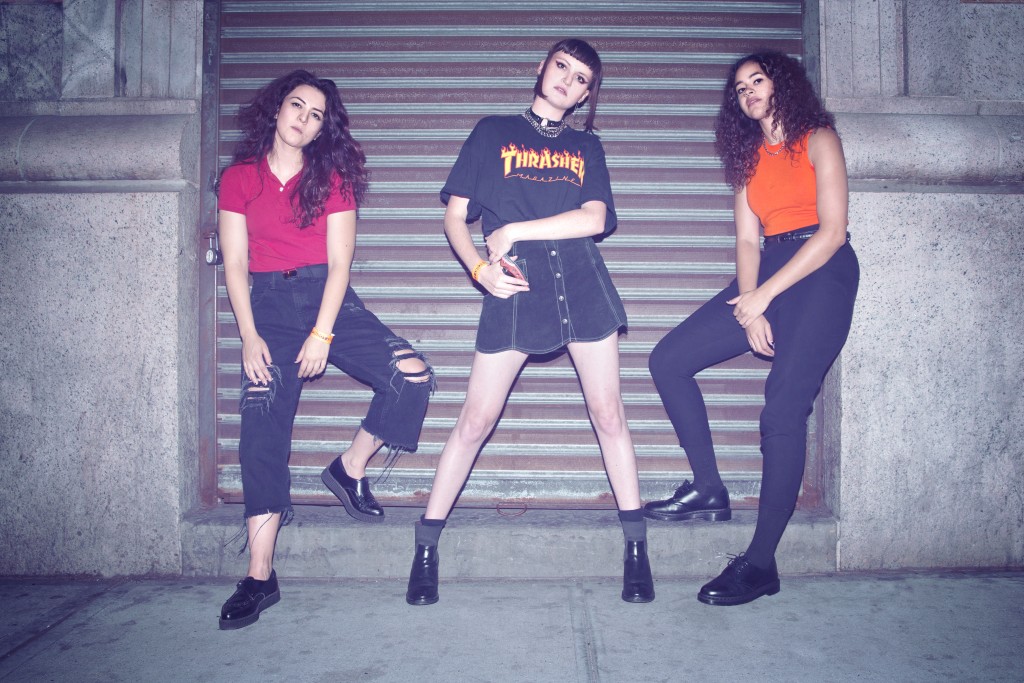 Have you had interactions with fans who also identify as queer who are excited to see a band representing them the way that MUNA does?
Have you had interactions with fans who also identify as queer who are excited to see a band representing them the way that MUNA does?
Josette: We played a show in Chicago and we were at the Metro and this young girl named Frans Lee and her friend, I think his name is Johnathan, made us a poster. It had our faces and profile over the LGBT flag and it said MUNA and then “Revolution! Queer Kids Unite.” And she wrote us this really long note on the back about being a queer Hispanic girl and how she felt emboldened by us and like someone was giving her a voice and encouraging her to have a voice. That was just the shit. That was the most validating, rewarding, one on one communication. We get the message that it’s working for some people that’s the first time anything like that has ever happened and been so clear. We know they’re out there.
The three of you are very close – you even describe yourself as a girl gang – how does your that closeness play into touring together, making music, and just being in MUNA in general?
Katie: I think one thing people notice about us is that there is a dynamic that some people might classify as strange because it is more than friendship. It’s familial, we all want to snuggle all the time, we give each other comfort in ways that I think a lot of band members probably should because it’s really hard to be in a band together and it’s hard to be on tour, you need affection and care so I feel really lucky as a queer girl band. One of the nice things about being feminine is that you have this freedom of expression that people that identify more as masculine don’t have access to or feel like they have access to, so it helps us.
I read that when you recorded “So Special” it was a turning point where you realized, “This is definitely bigger than us.” What was it about that song that made you feel that way?
Naomi: That came down to the process. We had put out an EP six months prior to that song and it was a collection of five songs, and we had written the only fives songs that we had written up to that point that had made it to the recording stage. They all sounded pretty different from one another, we really liked them and we still really like them, but with “So Special” we made the conscience decision to make it more of a banger. Once we had the demo we had this arpeggiated bass line. I was listening to a lot of synth-pop at the time and to this guy Active Child, and I was like, I want it to sound like that, but bigger. That song got different tracks written for it so many times. Once we nailed it down we knew here is the sound that we like and this is the process that works best for us. It was a very rewarding experience.
Is it ever frustrating when people listen to your songs on the surface level without understanding the message behind them?
Katie: I think that people take what they need and if you need to hear a pop song and feel like, “yeah, I’m going to start my day off right,” then that’s great and I don’t care. I think “Loudspeaker” is the clearest example of that. For me it’s about something really dark in terms of my own personal experience. It’s coded in the lyrics. So much of our lyrics are coded. You’ll totally get it if you’ve had the same experience. In a way that kind of makes me feel safe. I am putting myself in a vulnerable place by writing about my experiences but I feel like it is in a way where the people who relate to me understand it and if you don’t get it you don’t get it and that’s cool for me too because it’s not a bunch of people crowding something that’s personal to me. So no, it’s not annoying.
